Taiwan’s ruling party candidate wins in crucial election closely watched by China
At stake is peace and stability of island with a population of 23 million people that has repeatedly witnessed threats from Beijing
Your support helps us to tell the story
From reproductive rights to climate change to Big Tech, The Independent is on the ground when the story is developing. Whether it's investigating the financials of Elon Musk's pro-Trump PAC or producing our latest documentary, 'The A Word', which shines a light on the American women fighting for reproductive rights, we know how important it is to parse out the facts from the messaging.
At such a critical moment in US history, we need reporters on the ground. Your donation allows us to keep sending journalists to speak to both sides of the story.
The Independent is trusted by Americans across the entire political spectrum. And unlike many other quality news outlets, we choose not to lock Americans out of our reporting and analysis with paywalls. We believe quality journalism should be available to everyone, paid for by those who can afford it.
Your support makes all the difference.Lai Ching-te, the presidential candidate for Taiwan’s ruling party, has won a crucial election that will chart the trajectory of the island‘s democracy and relationship with China over the next four years.
Mr Lai, Taiwan’s vice president, said he was “determined to safeguard Taiwan from continuing threat and intimidation from China” in his victory speech. Both rival parties have now conceded defeat.
Mr Lai’s Democratic Progressive Party rejects China’s territorial claims over Taiwan and he has been denounced by Beijing. His win will deliver an unprecedented third term for the ruling party.
The Chinese government responded to his win by calling Taiwan “China’s Taiwan” and adding that their commitment to “reunification” remained “as firm as rock”.
At stake is the peace and stability of the island with a population of 23 million people that has repeatedly witnessed threats from Beijing. Voting began at 8am local time (12am GMT) and wrapped up eight hours later as eligible Taiwanese voters lined up to cast their ballots. The counting of votes began soon afterwards.
At least 18,000 polling stations were set up across the temples, churches, community centres and schools, where voters must go in person to cast their ballot as the rules do not allow postal votes.
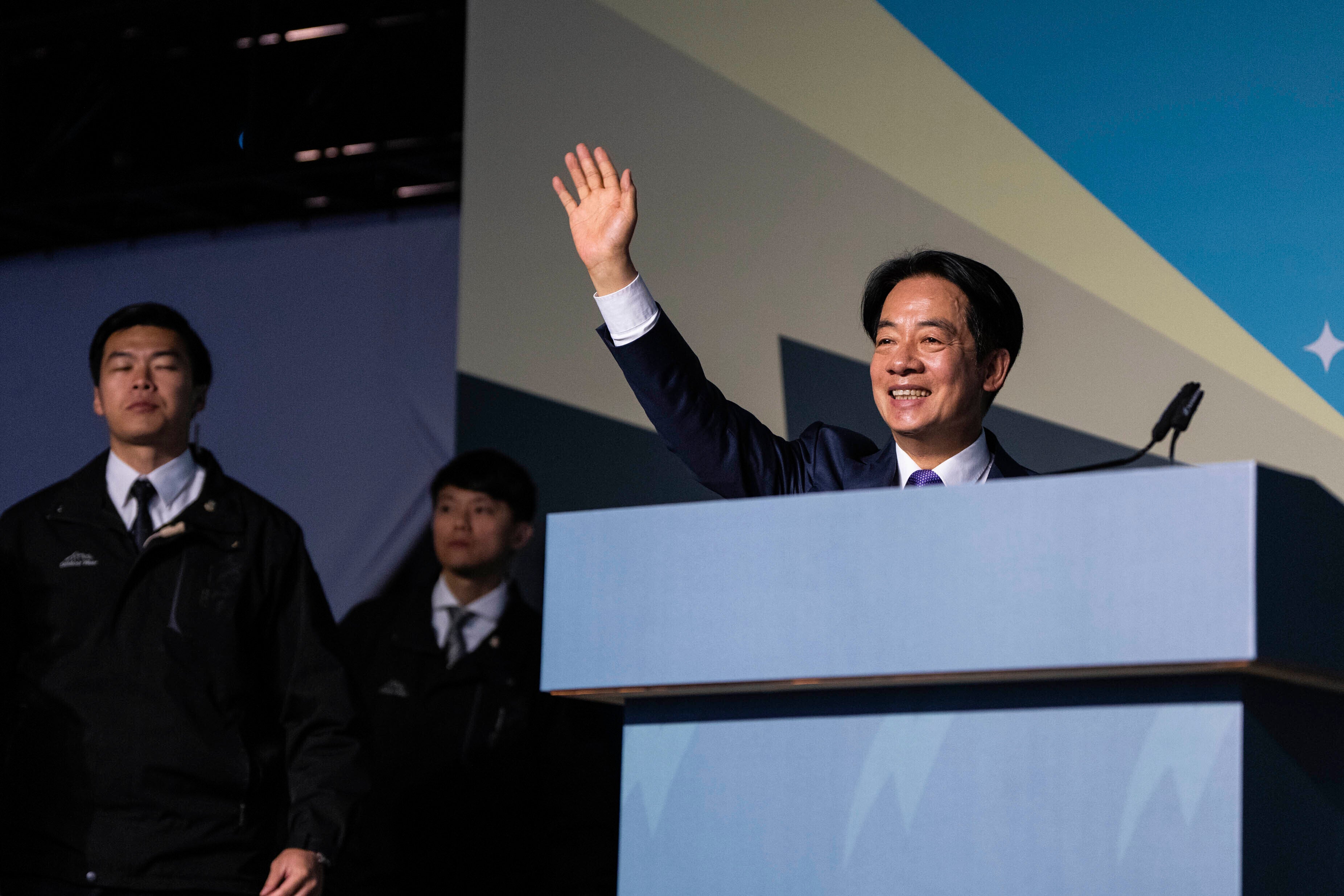
The electorates were mainly choosing between the governing Democratic Progressive Party (DPP), which champions Taiwan‘s separate identity and rejects China’s territorial claims, and the opposition Nationalist Party, Kuomintang, that wants to expand trade ties with China.
The DPP’s Mr Lai, who will now succeed outgoing president Tsai Ing-wen, said after his victory that “through our actions, the Taiwanese people have successfully resisted efforts from external forces to influence our elections.”
He told the crowds in Taipei: “I want to thank the Taiwanese people for writing a new chapter in our democracy. We have shown the world how much we cherish out democracy. This is our unwavering commitment.”
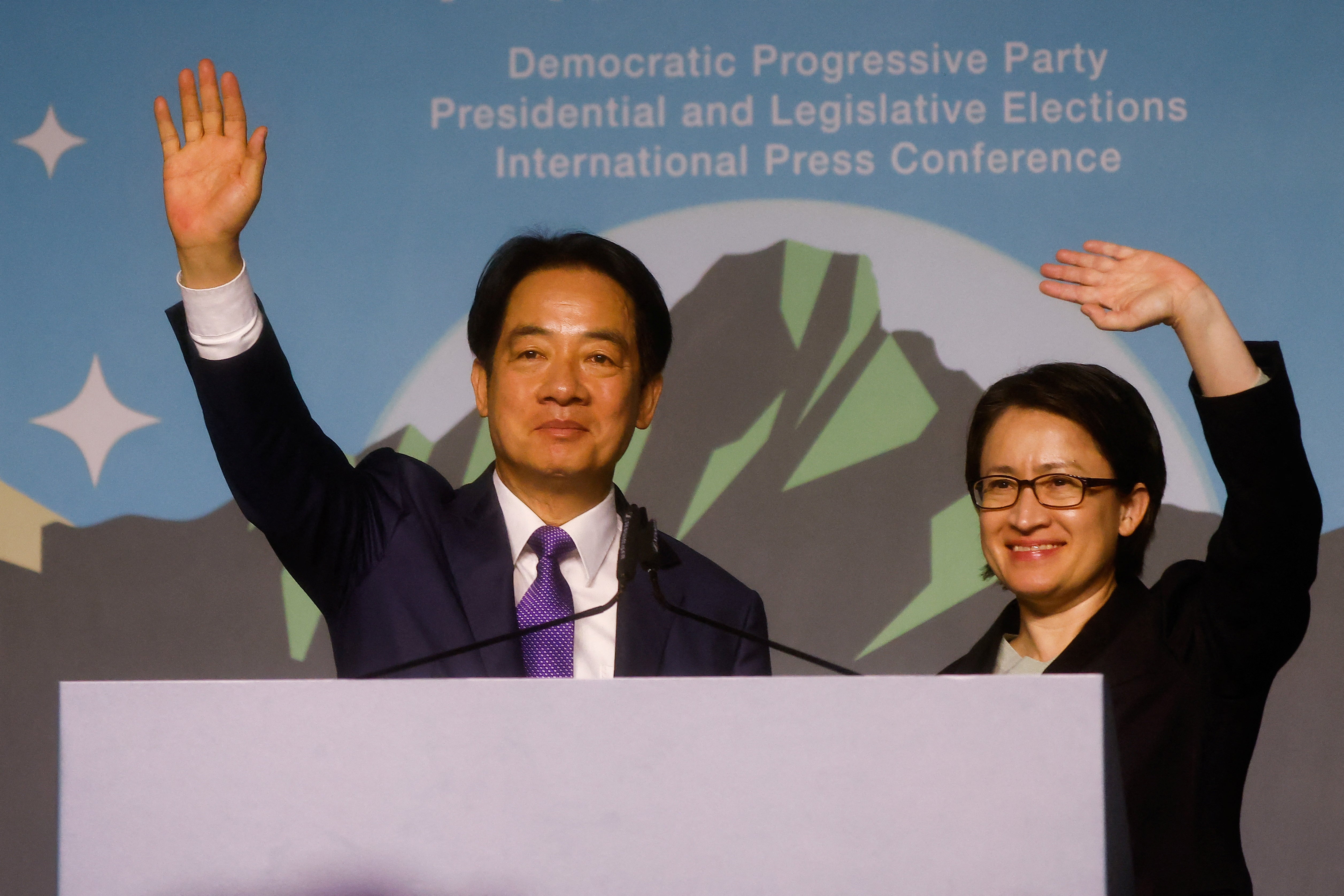
Early results showed that Mr Lai had won more than 40 per cent of the vote, ahead of Kuomingtang party and the Taiwan People’s party. Mr Lai’s predecessor won the last election with a majority of the vote, so his party’s share of the vote has decreased despite their historic win.
Earlier in the day, Mr Lai cast his vote in his hometown of Tainan. He remarked on the sunny weather, suggesting it’s a good time for Taiwanese people to go out and vote.
"I encourage everyone around the country to vote with enthusiasm and show the vitality of Taiwan‘s democracy," he said.
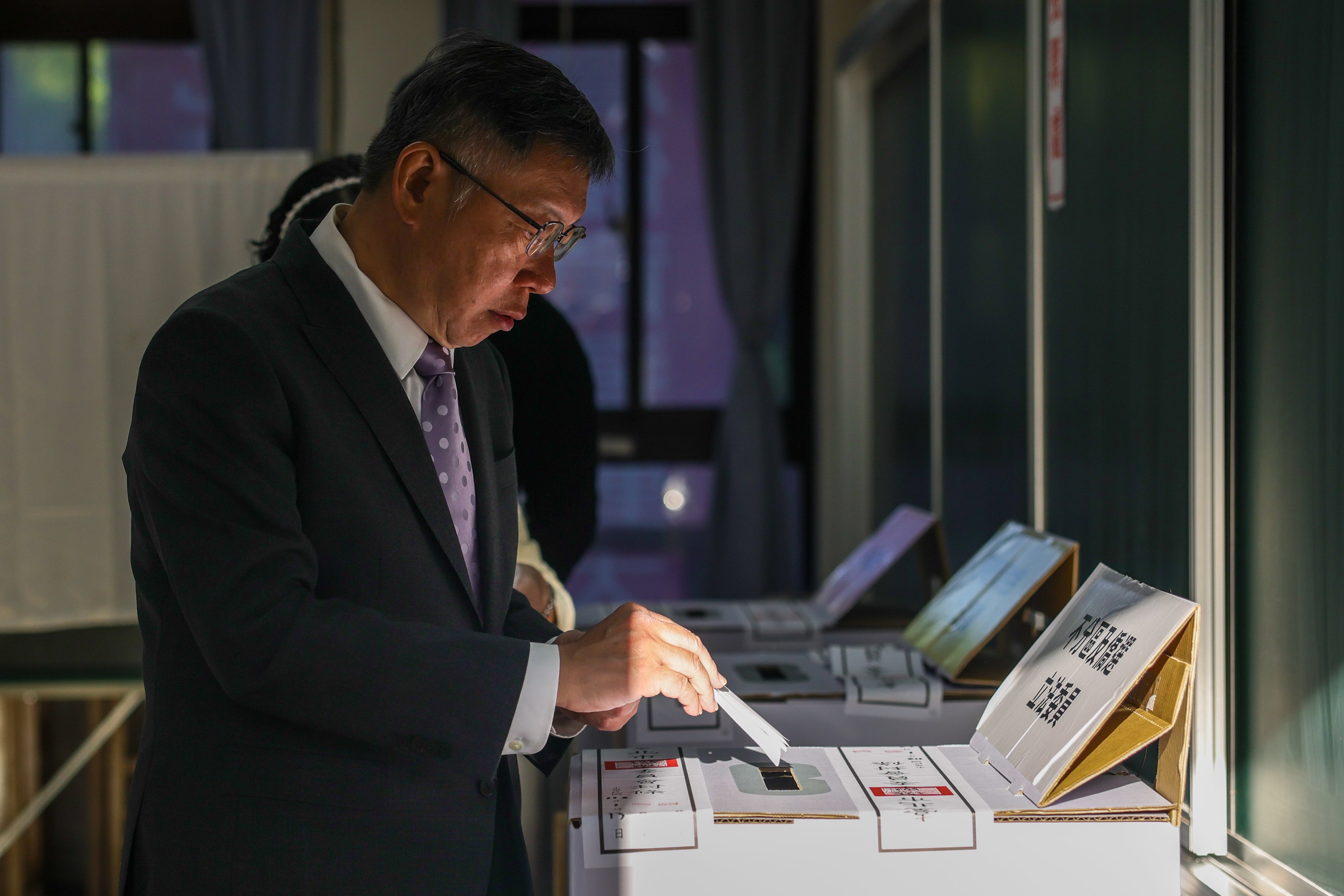
Hou Yu-ih, the candidate of Beijing-favored Kuomintang, also known as the Nationalist Party, cast his ballot in New Taipei City, a municipality bordering the capital, Taipei. Mr Hou is the mayor of New Taipei, a position from which he took leave to run for president.
"What we need during the election campaign process is chaos," he told reporters after casting his vote. "But after the vote, we must be united and face the future of Taiwan together."
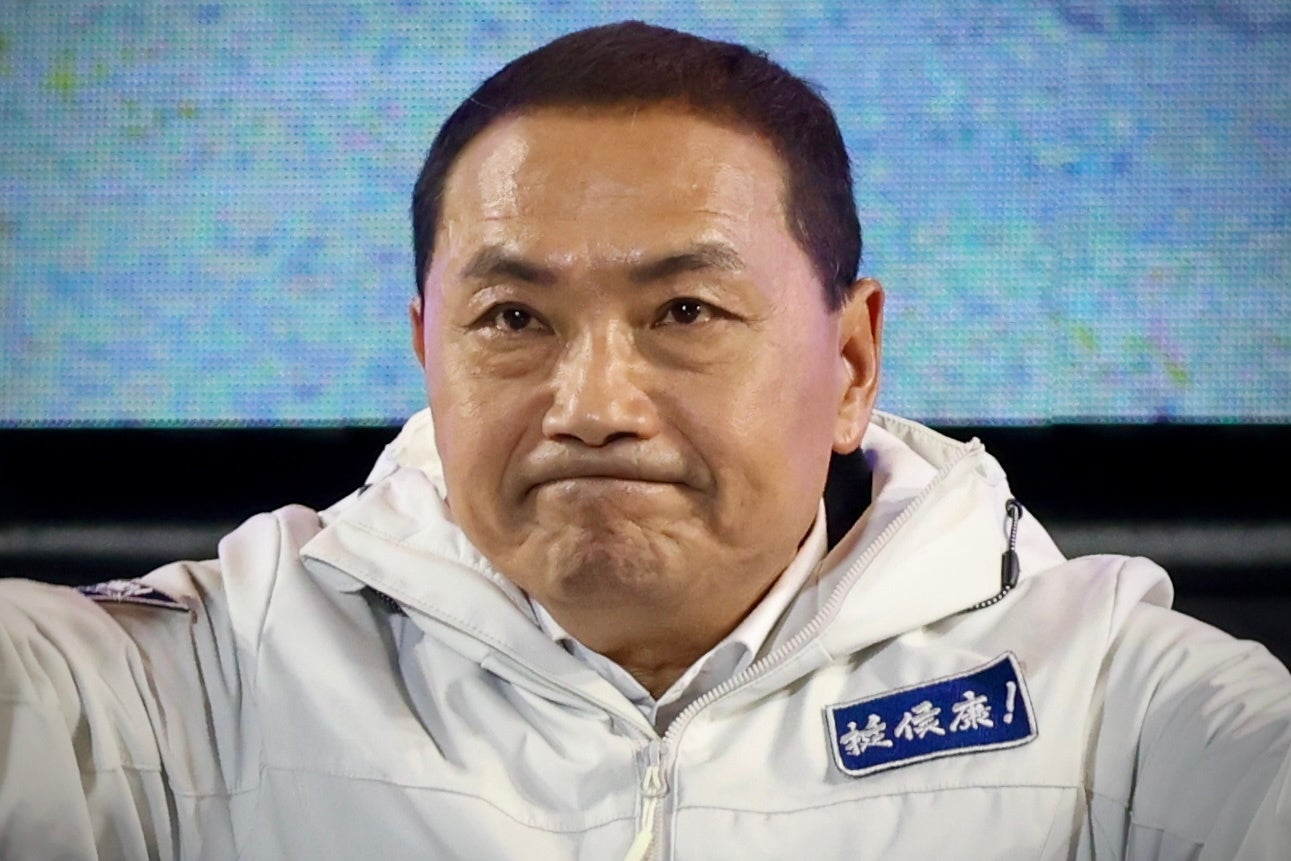
Alternative candidate Ko Wen-je of the Taiwan People’s Party, who has shown popularity among young voters seeking an alternative to the two major parties, voted in Taipei.
Asked by journalists how he felt, Mr Ko, in his well-known dry manner, said he aimed to try his best every day "and plan for the next stage when we get there".
In the run-up to the election, China repeatedly denounced Mr Lai as a dangerous separatist and rebuffed his repeated calls for talks. Mr Lai says he is committed to preserving peace across the Taiwan Strait and boosting the island’s defences.
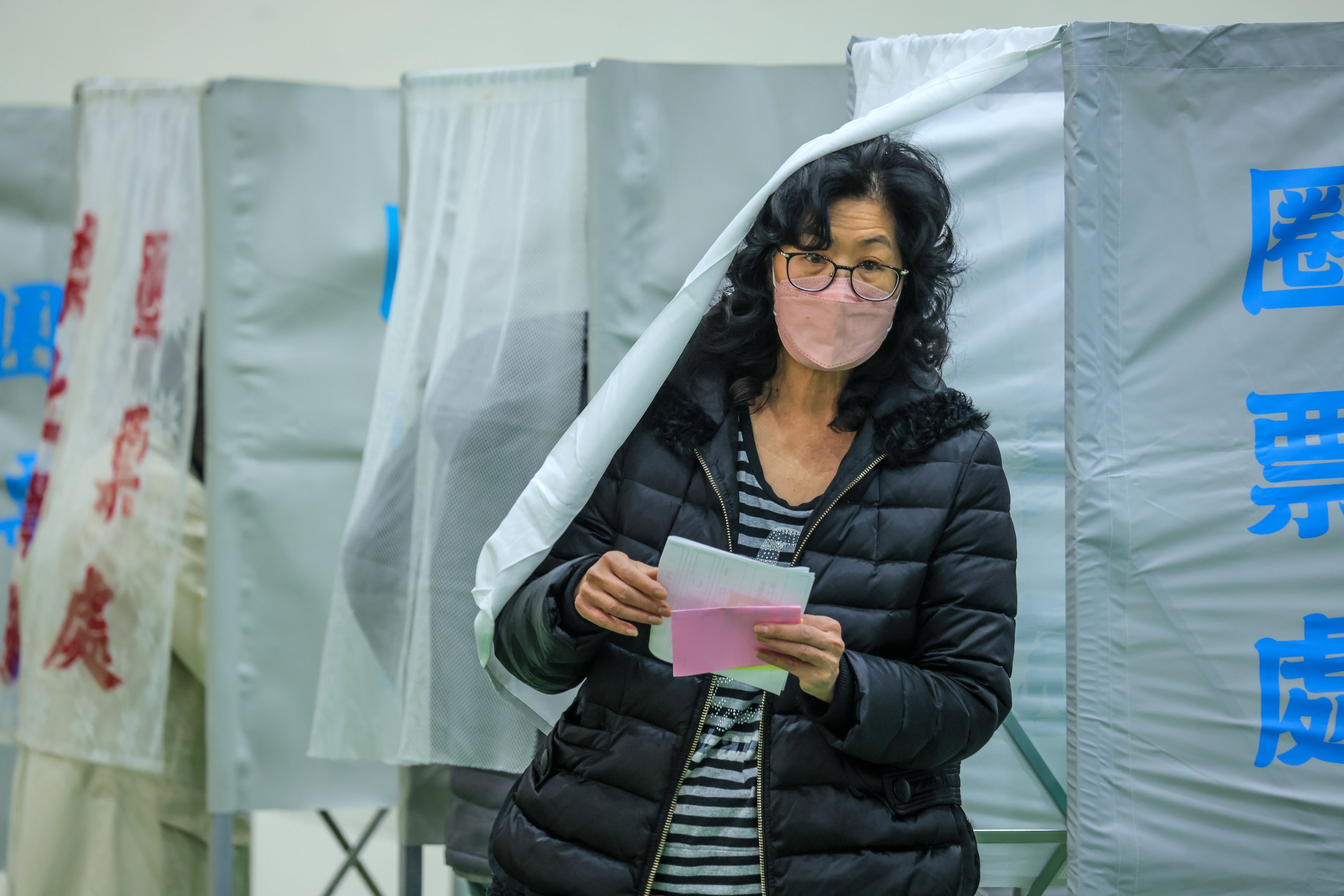
Besides the China tensions, domestic issues dominated the campaign, particularly an economy that was estimated to have grown just 1.4 per cent last year. That partly reflects inevitable cycles in demand for computer chips and other exports from the high-tech, heavily trade-dependent manufacturing base, and a slowing of the Chinese economy.
Taiwan‘s defence ministry said on Saturday morning it had again spotted Chinese balloons crossing the sensitive strait, one of which flew over Taiwan itself. The ministry has denounced the spate of balloons reported over the strait in the past month as psychological warfare and a threat to aviation safety.
China’s military threats could sway some voters against independence-leaning candidates, but the United States has pledged support for whichever government emerges, reinforced by US president Joe Biden’s administration’s plans to send an unofficial delegation made up of former senior officials to the island shortly after the election.
Taiwan‘s election is seen as having "real and lasting influence on the geopolitical landscape," said Gabrielle Reid, associate director with the global intelligence consultancy S-RM.
"The outcome of the vote will ultimately determine the nature of ties with China relative to the West and will have strong bearing on the state of play in the South China Sea," she said.
Additional reporting by agencies

Join our commenting forum
Join thought-provoking conversations, follow other Independent readers and see their replies
Comments